Not this time! This time, I will share my Exploration into Twitter Chat Land. I have pulled out some examples of Top Tweets (as determined by myself for myself, but also for others in a similar situation). As well as some of the links to Blogs and other resources. In a follow-up blog, I may include these to create The Compilation of Mega-Advice for Successful Job Interviews. Of course, then…
I WILL LAND MY PERFECT FIT TEACHING JOB!I am a Twitter Newbie…. kind of. I’ve been on it for over a year, but I am more of a passive user – for now – I think I might try a chat one of these days, like the New Teacher Chat (#ntchat), moderated by Lisa Dabbs @teachingwthsoul. You can check out the Wiki here.
Also note that I did not notice this wonderful and extremely relevant chat until the end. I scrolled through and was impressed by the succinct, yet helpful comments and links to informative blogs.
So, for all you other Twitter Chat Newbies out there, here’s what seems to happen…
The moderator will tweet the topic details, like this:
Lisa Dabbs Join me in 15min for New Teacher Chat #ntchat Today, Wed. 7/11 8et/5pt Topic:Tips for Performing Your Best at Your Next Interview#edchat.
Next, she introduces herself and the chat (just like if it were a f2f convo!):
Welcome, All!! I’m the founder and moderator of #ntchat Join me for this time of learning and collaboration!! To join the chat you may want to use Tweetdeck, tweetchat or other client that allows columns. Use the hashtag #ntchat to join the convo! We are a small, but mighty chat…dedicated to being practitioner focused and supportive to new teachers! Before we get started…Let’s take a minute to introduce yourselves. Share who you are and where you’re from! Thanks… To be supportive we do a “structured chat” for first 20 min: Q1, Q2, Q3 with A1, A2, A3 to have everyone participate!
And, the chat begins:
QUESTION 1: WHAT’S THE FIRST THING (A NEW TEACHER) SHOULD DO TO PREPARE FOR AN INTERVIEW? LET’S SHARE IDEAS!Participants contribute to Q1:
A Teacher’s Life Have a clear educational philosophy that you can discuss in a few minutes & a prospective discipline plan for your classroom.
Jerry Blumengarten Prepare a portfolio preferably Digital http://tinyurl.com/4btmvrg Have an ed philosophy, Practice answering questions…Must show how you would differentiate learning but also they look for classroom management skills which are very important …
Karl LS Research the school they are interviewing with-the more specifics you can reference about the school the better.
Blanca E. Duarte Read about the community, visit and observe children at the library, the stores, the park. Know your community and it’s children.
Dave Burgess I think it is very important to be able to speak from a place of passion about why you want to be a teacher. Also important to show you are a learner.Talk about what you have recently done to grow and a recent relevant book you have read. One way I got my job (revealed to me later) is because they asked what I had read recently and I knocked it out of the park.
José Popoff The focus needs to be on what you can do for the school not other way around
QUESTION 2: HOW DO YOU PRACTICE FOR THE INTERVIEW TO BE SURE YOU SHARE WHAT’S IMPORTANT?Lisa Dabbs Schedule a day of introspection. Think about your career, your goals, and your past experiences. Organize your work samples!
RT @PrincipalDunlop: RT @cybraryman1: A2 Video your practice sessions and you will see/hear things you can work on.
RT @guster4lovers: #ntchat I’d say make yourself a website with as much work/info as possible. it’s how I got my last job
RT PrincipalDunlop: A1: ask a mentor about possible interview questions. Do a mock interview. Painful but so helpful!
Two Teacherz Make Top 5 List of key words that represent most important items; at end of ALL interviews you get floor. Use them! Be able to express how you can reach, teach ALL learners (differentiated instruction).
QUESTION 3: HOW IMPORTANT DO YOU THINK IT IS TO MEMORIZE THE THINGS YOU WANT TO SAY, BUT STAY CONVERSATIONAL? COULD BE TRICKY?Sue Dunlop instead, organized experiences into themes: literacy, numeracy, assessment, classroom management, PLC’s etc Have a framework to organize your thouhgts, especially if you tend to ramble or if you get paralysed… had an art teacher bring in art pieces done by students. Fantastic!
Lisa Dabbs I think it’s important to have some strong talking points prepared. Then feel confident to go with the flow and SMILE! Know what you want to emphasize but don’t memorize – you’ll have enough on you mind that day! Stay focused on the interview question. Do not ramble. And it’s okay if you do not know the answer. Be honest!
Melissa Edwards Practice speaking slowly and distinctly without saying “ummm”. Know a few things you want to emphasize but don’t sound rehearsed.
Cheryl Morris Try to give a general principle followed by specific example: “I believe in x. In my classroom it looks like y.” Bring water so u can pause to think/drink. ALWAYS ask on the phone beforehand. then bring what they tell you to. if they say nothing, then listen to that.
QUESTION 4: WHAT KINDS OF PRESENTATION ITEMS DO YOU THINK ARE IMPORTANT TO BRING TO THE INTERVIEW?(WE MAY HAVE SHARED THIS, BUT…)RT @Miss_Doig: An iPad if you can so that you can refer to examples quickly. Make sure your digital portfolio is well organised. (I KNEW I was right in proclaiming, “I need one!“
Lisa Dabbs I loved it when new teachers brought in actual artifacts of lessons worked on. Really impressive. I also had a prospective interviewee, bring in a video she had done of herself teaching a class! It was great to see.
Billy Spicer My experiences on interview committees is that you have to embed your portfolio INTO your responses. I’ve interviewed candidates that created websites, infographic resumes (cool!), & @prezi to use in interviews. You MUST stand out.
Jimmy Casas If I were interviewing for job today I would ask permission 2 teach a class so they could see my skill set in the classroom w/kids.
QUESTION 5: HOW DO YOU DRESS FOR THE INTERVIEW?William Gabriel Suit and Tie. I try to wear a tie that matches the color of the school. Subliminal message. It was what my g-father taught in.
RT @dalehancock: Be confident with humility. Most of all, be yourself. That is who you’ll be your first day on the job.
Lastly, the moderator will close the chat with suggestions on “where to go from here” for follow-up:
Wow! Where did the time go!! A HUGH heart felt Thank You to all of you for stopping by tonight! Be sure to follow some of the new friends you met here, tonight at New Teacher Chat #ntchat to continue the convo! Archives of New Teacher Chat will be on the wiki soon http://goo.gl/yLYf See you next week for our chat w/@KleinErin on Pinterest. OK friends…remember we are here for you. If you need a mentor…you need to check out our group! (http://tinyurl.com/8ylavvm) Be sure to check out & LIKE our New Teacher Chat Facebook page!http://goo.gl/kZCPv Share it with your FB buddies! I also have a list of interview questions that I will post to the wiki as soon as @evernote comes back on line!!
There it is, in a nutshell… Do check out the archives because there were many more super contributors. Always remember:
Faige Meller Be true to yourself. Don’t try to impress. Share who you are and why you want to teach.
The clincher testimonial to convince one of Twitter’s potential…
Mary Bertram Hi! Cant stay for the chat today but just wanted to drop by & say all the weekly #ntchat convos helped me get my first job!
SUPER BONUS LINKS THAT I WILL BE DELVING DEEPER INTO:…and this is why teachers should have blogs - George Couros
10 Tips to Help You Break to the Front of the Interview Pack! - Randee Kallison
#MentoringMonday An Article a Day…Might Just Save Your Teaching Life – Lisa Dabbs
http://www.freetech4teachers.com/2012/07/how-to-ace-your-interview-for-teaching.html
http://www.edulang.com/blog/7-things-you-should-let-go-of-to-become-a-happier-teacher/
10 Mistakes to Avoid In Your “Hire Me” E-mail – Carrie Jackson
http://oregonstate.edu/instruct/ed416/Task4.html – This is an Educational Philosophy Task that is good for Newbie & Not-So-Newbie teachers alike!)
http://cybraryman.com/teacherinterviews.html
http://cybraryman.com/portfolios.html
http://cybraryman.com/chats.html
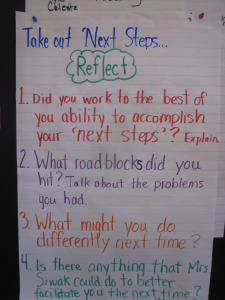

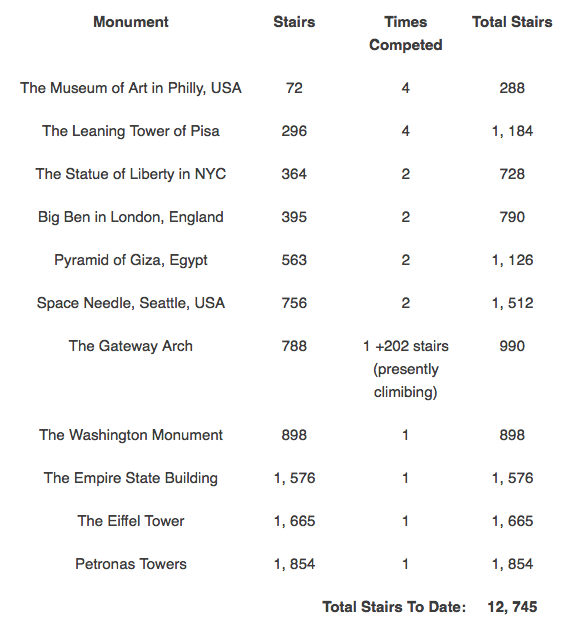

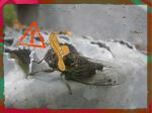
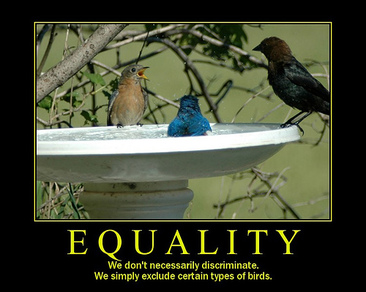
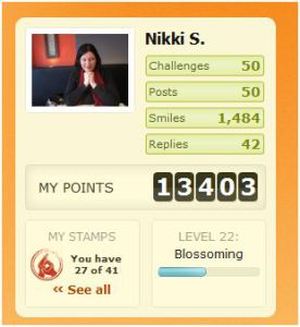

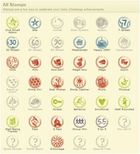
 RSS Feed
RSS Feed
